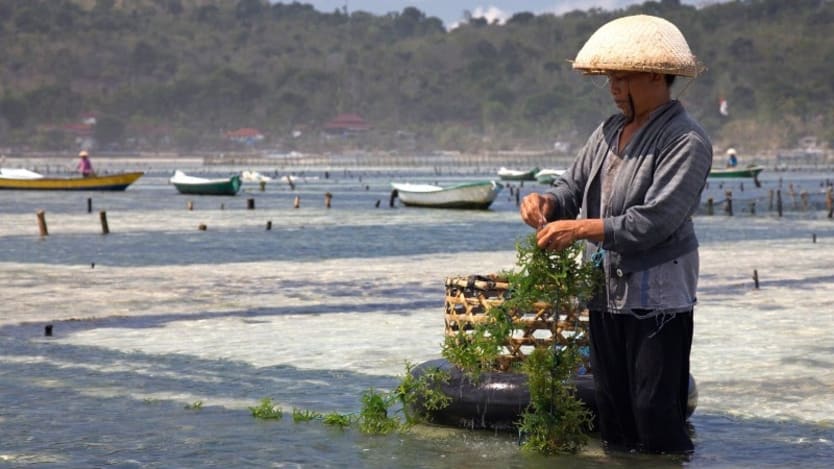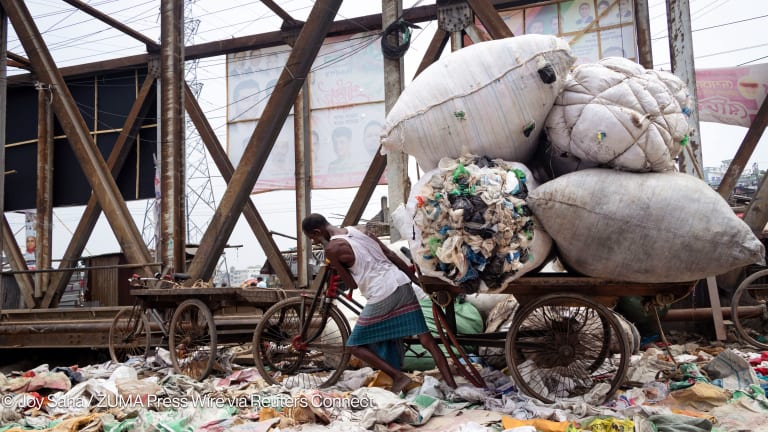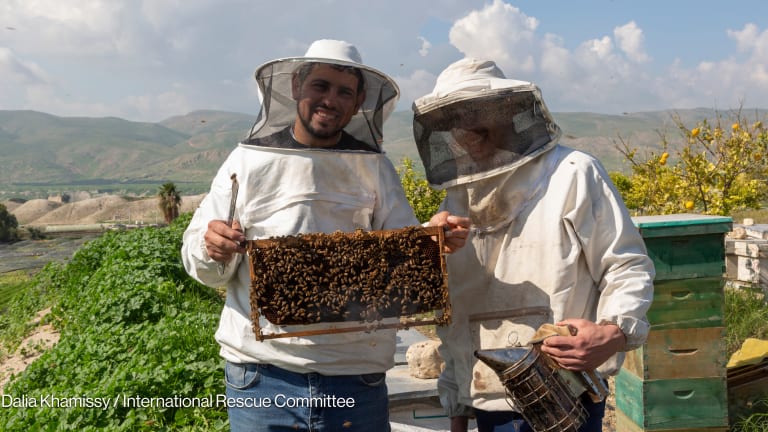
In a world where governments, the public, and the media remain focused on a single issue, discussions of a green recovery following the COVID-19 outbreak continue to gain traction. The political framing of major public investments is shifting, with support from electorates for a more environmentally friendly approach. Although we’ll have to wait to see if the policies deliver in reality, it is encouraging that some long-overdue initiatives are being accelerated.
In low- and middle-income countries, a green recovery is a tantalizing prospect. Many are at a point where their future economic development, industrialization, and urbanization could be steered from “grey to green,” as United Nations Secretary-General António Guterres suggested near the beginning of the pandemic.
But we must be wary of assuming that the coronavirus will automatically bring us to our senses, providing a course correction toward greener and more just economies. Former U.N. Special Rapporteur Philip Alston’s recent warning about the misplaced optimism surrounding the 2030 Agenda for Sustainable Development is a reminder that progress doesn’t happen by accident.
The post-coronavirus recovery will only be green and equitable if we can build international consensus and coordination. “Green recovery” must be more than a glib phrase.
Opinion: Addressing plastic pollution must be a part of the ‘green recovery’
How can plastic pollution be tackled during a pandemic? This guest commentary looks at how this should be a key piece of the global rebuilding effort and some of the ways it can be done.
One concept that has been gaining traction for a number of years is the circular economy. This approach, in which resources are kept in use for as long as possible and waste products are reused, could help steer a green recovery. It means reinventing linear global supply chains, which are based on extraction, consumption, and disposal and whose weaknesses have been exposed by the pandemic.
Circular economy practices can yield bigger gains. By reducing waste and pollution, a circular approach could drive progress toward a number of the Sustainable Development Goals, including health and well-being, water and sanitation, green industrial development, inclusive and safe urbanization, and sustainable consumption and production.
However, it is important that as these opportunities gain new attention — and funding — concepts such as circularity are clearly defined and potential impacts are assessed and measured. If not, the rush for countries, companies, and even NGOs to burnish their green credentials risks misguided investments and, worse yet, “green washing.”
At Chatham House, our conversations with development banks, governments, NGOs, and the private sector indicate a growing interest in circularity and related concepts such as zero waste and resource efficiency. But a common refrain is that investors and practitioners feel they lack consistent measures and standards to judge the effectiveness and impact of an investment. Unless these are rapidly brought in, we’ll miss a huge opportunity, as argued in a recent paper published in the Journal of Industrial Ecology.
How then can we ensure that the green recovery and the associated funding are properly directed?
First, to make the most of the chance we have now, conversations about green recoveries and “building back better” must be globally inclusive. Concepts such as the circular economy tend to emerge from Europe, but exciting initiatives are happening elsewhere too, from innovative startups developing sustainable packaging from seaweed in Indonesia to the United Nations Industrial Development Organization’s Biovalor project in Uruguay, generating energy from the waste products of cattle.
Much like dealing with the pandemic itself, the economic recovery must be a global project — and that means development finance institutions such as the United Kingdom’s CDC Group making serious investments in circular and other environmental initiatives like these in LMICs.
Second, these investments must be guided by stronger, internationally agreed standards on how money is used and how projects are assessed. Green development concepts need to be more than just a loosely defined badge.
The EU Green Bond Standard’s “use-of-proceeds” approach is a useful model, as it requires transparent reporting against impacts on the environment and climate. More generally, Guterres was right that climate risks must be built into the financial system.
Opinion: A green recovery action plan for the World Bank
There is a lot more the World Bank can do to address the coronavirus and climate catastrophes at the same time, writes Ladd Connell, environment director at the Bank information Center, in this op-ed. Here are the top five.
Further, as we highlighted in a recent paper at Chatham House, we mustn't assume that the shift to greener economies will be a pain-free panacea. We’ll need to support groups vulnerable to the changes that a green and circular transition will bring with packages to protect jobs and build new skills, as the European Bank for Reconstruction and Development observed with its just transition finance initiative.
Finally, we need to work out how to bridge the gap between good practice on the ground and investments made by multilateral or international actors. In my research, I have seen many examples of small and medium-sized enterprises and small entrepreneurs using circular practices, such as closed-loop technologies in India’s metal-finishing industries or turning plastic waste into paving tiles in Gambia. We need to make sure the financial and technical backing is available to scale up these sorts of initiatives.
There is a clear opportunity ahead of us, but a green recovery won’t happen by accident. We need to get our investments and processes right now to seize the moment that’s coming.








